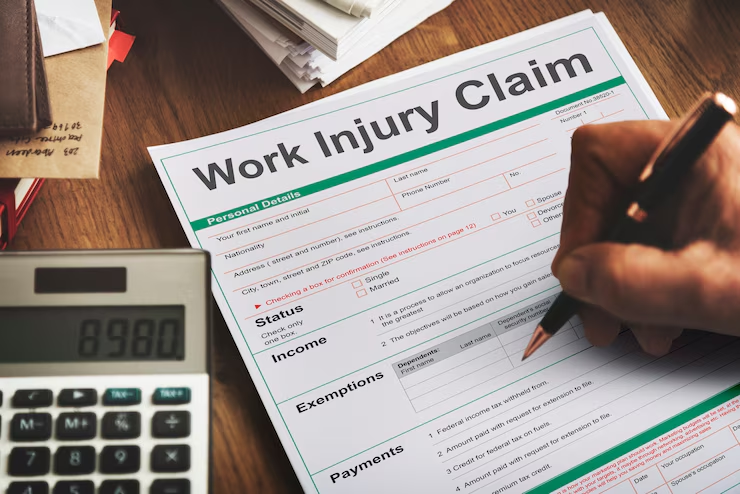When someone pursues a personal injury claim in Texas, concerns about how it might impact their financial standing often arise. A personal injury lawsuit itself does not directly damage credit, but failure to pay any court-ordered damages or debts can negatively affect credit scores. This distinction is important for anyone involved in legal action related to injury claims. Here’s what to keep in mind.
In most cases, personal injury settlements are protected from creditors trying to collect outstanding debts, though exceptions apply. However, judgments entered after a lawsuit can appear in public records and may influence credit reports. Understanding how these factors interplay helps individuals better manage their financial health during a legal dispute.
Those seeking compensation following an accident can benefit from guidance by skilled attorneys in Houston, Texas, who assist in protecting both legal rights and financial interests throughout the process. Consulting with personal injury lawyers in Houston provides clarity on how legal outcomes might affect finances in practical terms.
How Personal Injury Lawsuits Impact Credit and Finances in Texas
Personal injury cases can influence a person’s financial situation in several ways. The effects often depend on outstanding debts, court outcomes, and legal protections available. Understanding these factors helps protect financial well-being during the process.
The Relationship Between Debt and Personal Injury Lawsuits
Outstanding financial obligations generally do not reduce settlement amounts from injury claims directly. Texas laws usually protect funds received from such claims from creditors’ claims. However, exceptions can apply, especially if debts are secured by liens or court judgments connected to the case.
Debts such as medical bills from the injury may be paid from the settlement before the remainder goes to the claimant. Creditors typically cannot seize personal injury settlements to satisfy unrelated debts. Still, individuals should report liens or debts during negotiations to avoid complications.
Court Judgments, Garnishments, and Credit Reports
If a court rules against the claimant in a personal injury matter, it can result in a judgment affecting their finances. Judgments can lead to wage garnishments or bank levies unless properly contested. Texas law offers some protections, but garnishments can reduce income available for living expenses.
Negative court findings may not appear directly on credit records unless the judgment is filed with credit bureaus. Although personal injury lawsuits themselves do not damage credit scores, failure to manage court-related debts afterward might. Maintaining communication with creditors and legal representatives is crucial.
Bankruptcy Options and Their Effect on Personal Injury Claims
Filing for bankruptcy, such as Chapter 7 or Chapter 13, impacts financial standing but does not necessarily negate personal injury claims. Chapter 7 involves liquidation, which can affect asset distribution, while Chapter 13 allows for a repayment schedule over several years.
Injury compensation usually remains separate from bankruptcy proceedings unless it’s already been disbursed. Bankruptcy can pause some debt collections and judgments, giving temporary relief. However, debtors must disclose injury claims when filing to comply with Texas law and federal regulations.
Protecting Your Financial Health During Legal Proceedings
Maintaining financial stability during a lawsuit requires proactive management of debts and income sources. Individuals should keep detailed records of all case-related expenses and payments. Establishing payment arrangements with creditors can prevent garnishments or liens.
Seeking assistance from legal professionals can clarify rights under Texas statutes and help avoid pitfalls. Monitoring credit reports regularly ensures that incorrect information does not appear. Funding options for covering expenses during the claim process might also be available even with limited income or credit challenges.
Texas-Specific Considerations for Financial and Legal Outcomes
In Texas, financial and legal results from a personal injury claim are influenced by state laws regarding compensation, insurance obligations, and medical expenses. These factors all shape how damages are recovered, paid, and potentially impact future finances or credit.
Personal Injury Settlements, Liens, and Insurance Requirements
In Texas, personal injury settlements commonly cover property damage, medical expenses, and lost income after accidents like slip and fall or medical malpractice. Insurance companies often play a central role in funding these settlements, but policy limits and requirements vary by case type.
Medical providers and insurance companies can place liens on settlement awards to recover costs they initially covered. Health insurance or Medicaid providers may claim a portion of the settlement to cover medical bills. It’s crucial for claimants to understand how these liens reduce the final amount they receive.
Homeowners insurance or other liability policies can affect negotiations since they often provide the funds for premises liability claims. However, Texas has caps on certain damages in some cases, which can influence settlement size and insurance premiums.
Medical Bills, Lost Wages, and Managing Compensation
Following an accident, health-related expenses and income lost from missed work are major financial concerns. Texas law allows victims to recover these costs, but documentation and proof are necessary to support claims.
Medical bills may be initially covered by personal health insurance, but insured individuals might have to repay insurers from received compensation. Lost wages require detailed records from employers and medical evidence showing inability to work.
Managing the awarded compensation demands careful planning to ensure liens are paid and remaining funds cover ongoing expenses. Coordination with personal injury attorneys helps in balancing immediate financial needs against possible future costs related to the injury.
Long-Term Consequences and Legal Support
Even after a settlement, financial consequences can persist, especially if injuries result in permanent disability or long-term care needs. Future medical treatments not fully anticipated in the initial claim can strain finances.
Legal counsel familiar with Texas personal injury law can assist in securing adequate compensation and managing liens to protect financial stability. Attorneys guide claimants through the trial process or settlement negotiations, aiming to reduce risks related to credit or unexpected expenses.
Understanding the legal landscape and insurance intricacies specific to Texas is essential for effectively handling both short- and long-term outcomes of injury-related claims.

